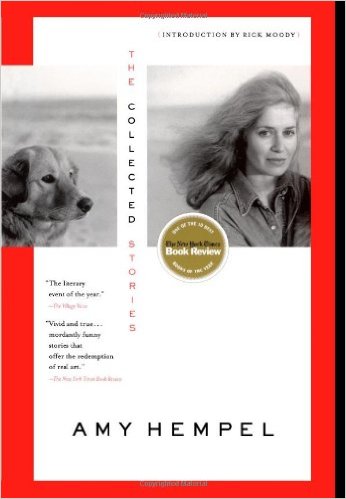What does it take to be the next J.K. Rowling or Shakespeare? Talent or drive? Passion or ambition? Lucky for University of Florida creative writing students, renowned short story author Amy Hempel has years of wisdom and experience to bestow on her students. So we asked Hempel: What does it really take to make it big (or at all, really) as a writer?
See Challenges, Not Risks
Writing in general is a hard craft that takes much determination in order to accomplish any recognition. Many rumors fly around about how writers are dirt poor, made poor career choices and try to enter an industry riddled with risks. “I don’t think [of writing] in terms of risks,” said Hempel.
Instead, she refers to risks as challenges. “Challenges depend on how seriously one takes it and what one wants from the writing… Challenges are just doing any job well, they’re just the challenge of doing anything well,” Hempel said. Advice for any person pursuing their passion in life, Hempel brings up an important reminder. Sometimes we look at certain trials as risks meant to drag us down instead of challenges that help us grow. Challenges not only mean doing one’s job well, but also result in becoming better at what you already do well.
Embrace Silence and Solitude
“Writing has in addition the requirement of solitude,” said Hempel. “So are you somebody who can work in solitude for long periods of time? And some people aren’t suited for that. Are you introspective? Imaginative?” These are traits that can help a writer in their work, whether it be in fiction or nonfiction, short stories or novels.
If writing is something you wish to pursue in a future career, ask yourself if you’re able to handle long periods of time away from people as well as well as warding off distractions. This obstacle presents a huge challenge, but leads to great writing.
Use Your Imagination (Or Don’t)
You might be a writer who struggles to use your imagination. Compared to the lush jungles of creativity that you see with your classmates, your imagination resembles a dry savannah dying of drought. “[Writers] don’t even have to be imaginative. You can be a good observer. I think people who are reporters and observers of situations make good fiction writers,” said Hempel.
Skills in observation can help lead writers to pick up small details not regularly noticed to the untrained eye. You might notice the way a person postures himself or compare and contrast different reactions to breaking news. This skill, in turn, will help lead writers to portray their stories in a new light that catches readers’ interest.

Explore Your Options
Hempel shared some honest input when regarding whether or not writing can be utilized as a full-time paying career. “I think it’s misguided to think that you can make a living if you look to your art to support yourself. I think that’s a mistake. Maybe that’s what you mean by risk. It’s not what it’s intended to do,” explained Hempel.
Instead of feeling discouraged from pursuing a career in writing, understand that writers have more professional opportunities to link with their writing. Let yourself be open to both writing and another career route. Writers get their inspiration from somewhere, right?
Connect the Dots
Hempel said, “I often think that it’s wiser for a writer to do something unrelated to writing, in the sense that then maybe you have something to write about, but also to utilize other parts of your brain and yourself.”
Hempel gave an example of this in her life to relate to the reader: dogs. “For me, my other passion is dogs. I do a great deal of different kinds of work with dogs, from rescue—that’s the most hands on—to being on a board working towards animal rights, working as an animal advocate and activist.” Hempel went on to explain that these passions, while they may slip into one’s writing, should not be done simply for the sake of writing, but for the love for the passion itself.
Don’t get Discouraged
When I decided whether or not to pursue a career in writing, I kept hearing that breaking into the industry itself proves a huge obstacle. Hempel didn’t encourage aspiring writers to steer away from the challenge. She explained that this challenge’s level of difficulty varies based on her personal experience. “I happened to have a remarkably easy time of it. I’m lucky in that respect, and I know other people who were even luckier,” Hempel said. “It’s really on an individual basis, so you can’t generalize… There are too many factors at play.”
Don’t let the fear of striking out keep you from playing the game. Who knows, you might be fortunate to have your work be published relatively easy, or you can feel greater pride over your story being published through all the extra hard work you put in. Both sound like a win to me.
Do the Unexpected
“Do volunteer work, whether it’s crisis intervention of some sort of hotline, or Habitat for Humanity—help people in hard times, because you’re doing something useful, it’s not writing.. I feel very strongly about that. Go where you’re needed the most,” said Hempel. Now that is good advice for writers to consider. It’s far better than just read, read, read! In fact, why not do both? Create the next literary masterpiece while doing good in the community.
Like any good novel, each writer has a unique story. Their stories often carry on into their work, so doing out of the ordinary, unexpected things will only help your writing grow and gain a deeper understanding of its subject.



















